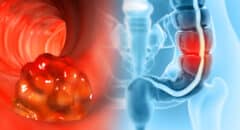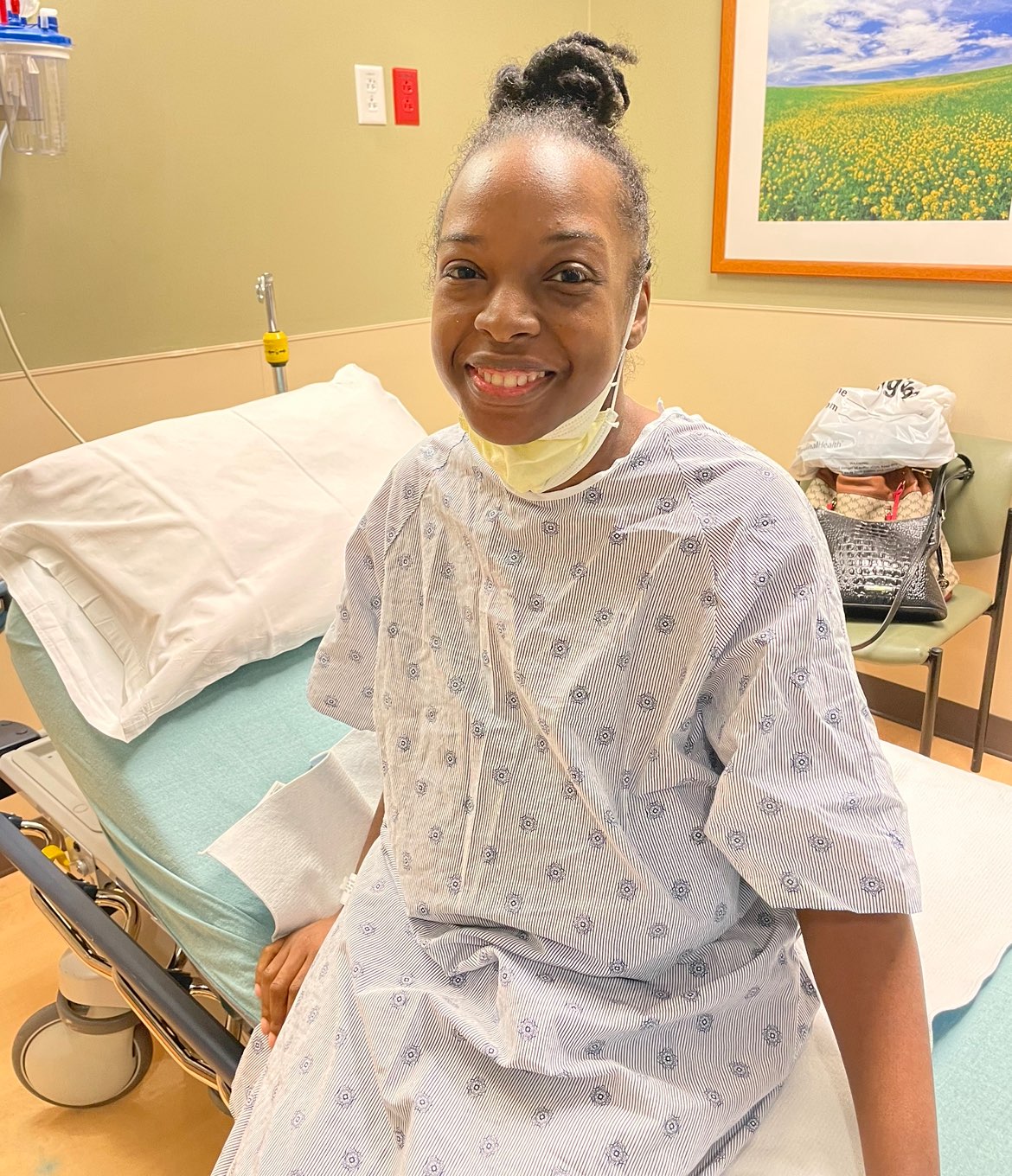
When Shaedra Young-Byrd sat down for her traditional seafood night with her daughter, she didn’t expect a few bites of crawfish to mark the beginning of a life-changing journey.
She noticed a change in her appetite—specifically, a diminished enjoyment of seafood, a longtime favorite shared with her daughter during crawfish season (February to July).
“I was only able to eat maybe two or three crawfish. Normally, I can eat up to two pounds by myself,” she recalls. “And she’s looking at me like, ‘Mom, are you serious? Is that all you’re gonna eat?’ And I’m like, ‘Yeah, that’s really all I could handle at the time.’ I ended up letting her and my niece eat the rest of my share,” she tells BlackDoctor.org.
That quiet moment was the first clue—her body was telling her something was seriously wrong.
“…I was waiting for that moment to indulge and enjoy time with her… and I couldn’t,” she adds.
RELATED: “At 35, I Got Colon Cancer”: Here’s My Warning to Young, Healthy People
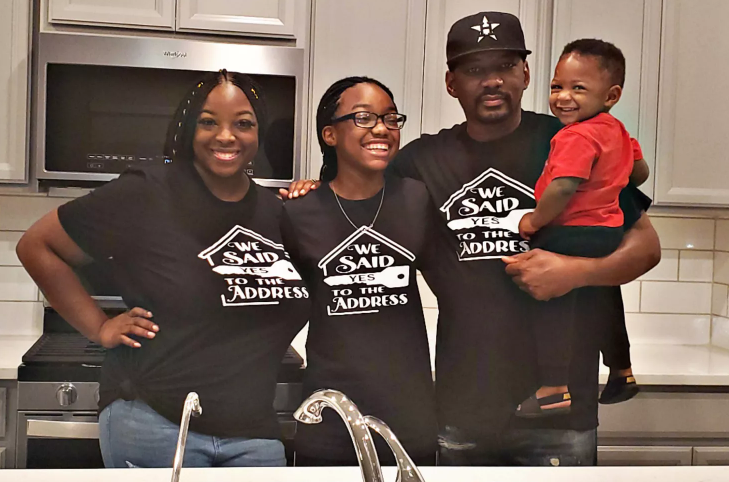
From Family Life to Medical Mystery
At 37, Shaedra was a mother of two, thriving in her career and active in family life. She loved cooking, traveling, and spending time with her children. But in early 2022, troubling symptoms emerged—fatigue, weight loss, bowel changes, and a complete loss of appetite.
“There were other times, like during family dinners, when my husband would bring food home and I’d maybe take a bite or two. He’d end up eating the rest,” she says. “That’s when I really knew something wasn’t right. Then I started having dizzy spells. Sometimes I’d come home, or just go to the restroom and back to bed, and feel lightheaded. I wasn’t eating like I used to.”
As dizzy spells became more frequent, family life became harder to enjoy.
“That was another red flag. The year before, we had bought our first home together, and I had been so excited about decorating. But I started not wanting to do those things anymore either,” she says.
When the holidays came, friends and family started commenting on her weight loss.
“Normally, I wouldn’t have been too alarmed—especially since I had lost my mom two years earlier and had been going through a rough time. I chalked the weight loss up to that,” she recalls. “I didn’t focus too much on it. Losing some weight over two years seemed okay. But looking back, that was part of it too—another sign something was wrong.”
Though she blamed the symptoms on stress, grief, and postpartum depression, deep down she knew it was more.
She went through a series of appointments and basic tests. Everything came back normal, but her symptoms worsened. She pushed for a referral to a gastroenterologist.
That decision saved her life.
RELATED: Q&A: Are Black Americans Facing a Silent Crisis with Colorectal Cancer?
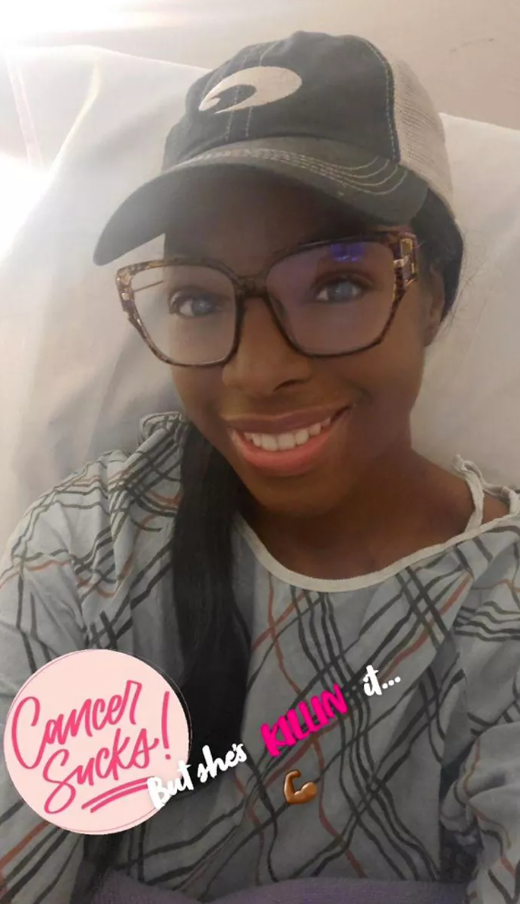
Diagnosis: Colon Cancer
“I was just trying to be proactive. I wasn’t able to enjoy the things I used to enjoy, and then I started getting abdominal pain,” she says. “That really triggered something in me. I thought, I’m not doing anything to cause this—so why is this happening?”
Desperate for answers, she even Googled conditions like irritable bowel syndrome (IBS) and inflammatory bowel disease (IBD).
“My cousin has Crohn’s disease, so I wondered if I was picking up similar symptoms. My bowels weren’t normal. I was dizzy, lightheaded, always tired. I wasn’t doing the family things I wanted to do. I figured it had to be something obvious—but I really didn’t know.”
In July 2022, Shaedra underwent a colonoscopy. The result: a golf ball-sized tumor in her rectum. She was diagnosed with stage 3 rectal cancer at just 38.
“I looked at my husband, and he didn’t look good at all. I’ll never forget that moment,” she recalls. “I asked, ‘Is everything okay?’ He was speechless. Finally, he said, ‘They found a mass, and it’s not looking too good.’ I couldn’t do anything but scream.”
“My husband isn’t a crier—he doesn’t show emotion. But I could see it all over his face. That’s when I prayed and said, ‘Lord, I don’t know what this is or why you picked me for this, but I know there’s a reason.’ All I could think of was the fight. I know what it’s like to live without your mom—I didn’t want my kids to see me broken or weak. So I wore the tough exterior, even if I had to cry in the restroom,” she adds.
Dr. Aakash Gajjar, MD, Colorectal Surgeon at Memorial Hermann Southwest Hospital, took over her care.
“She had bleeding, weight loss, and a strong family history—her uncle and great-grandmother had colon cancer,” Dr. Gajjar tells BDO. “Her tumor was advanced and aggressive. Based on her symptoms, we suspect it had been developing for a few years.”
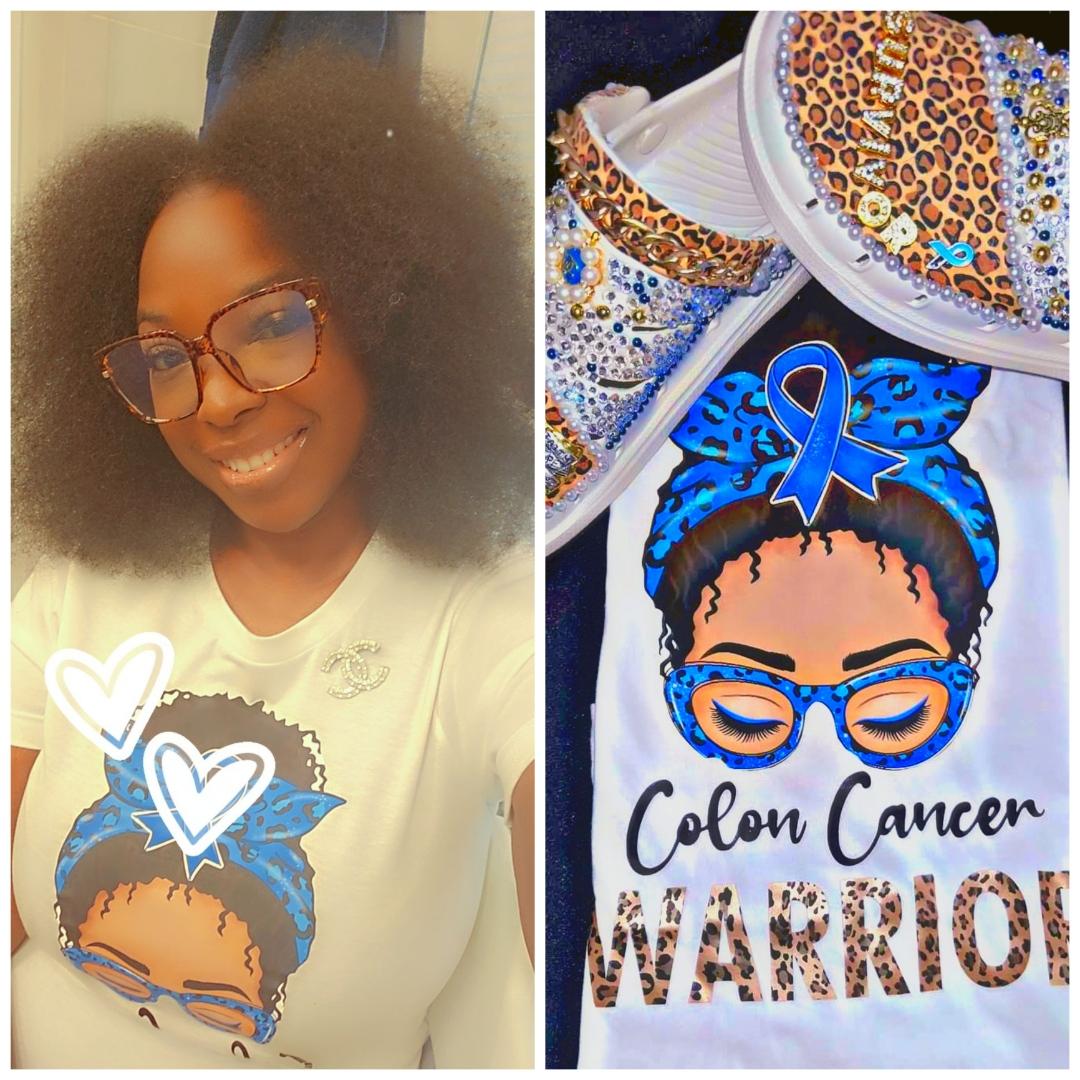
The Fight of Her Life
Dr. Gajjar presented her case to a multidisciplinary tumor board. Together, the team developed a treatment plan: months of chemotherapy and radiation, followed by surgery to remove the tumor.
“Her tumor markers dropped significantly,” Dr. Gajjar shares. “She had a remarkable response to treatment. We performed a robotic, minimally invasive surgery, followed by a temporary ileostomy to allow her body to heal.”
Through it all, Shaedra kept showing up for her job, her children, and herself.
“Even though I wore a smile, I wasn’t really smiling inside. I just wanted to reflect hope on the outside… It was really, really hard. I think I was in the ER every other day, or every week, just trying to get through it,” she says.
Amid treatment, she earned a promotion at work.
“That gave me purpose,” she says. “I lost my mom two years ago. I bought my house. Now I have cancer. And I lost my mom two days after having my son. I just knew there had to be a purpose in all of this—especially showing my kids I was going to fight.”
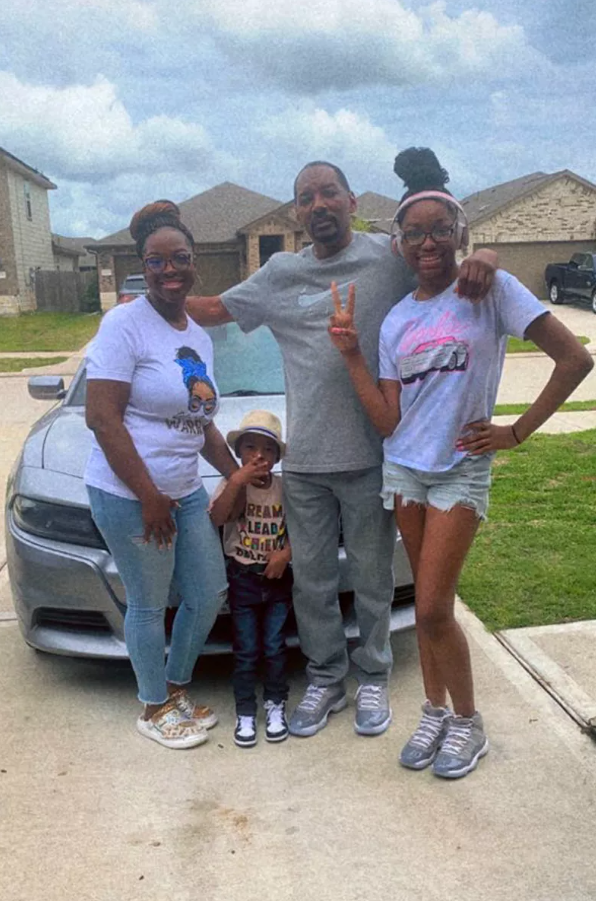
Remission and Reflection
In summer 2023, she finally heard the words she had prayed for: “No sign of cancer.”
“I almost shouted in the office,” she says. “After everything—chemo, radiation, the ostomy—I was cancer-free.”
She later had her ostomy reversed and completed an additional round of chemo. Today, she remains in remission. Dr. Gajjar continues to monitor her closely.
“For the first three years, we follow patients every three to six months. Labs, scans, colonoscopies—it’s critical to catch any sign of recurrence early,” he says.
RELATED: Know Your Risk: 10 Things Blacks Need to Know About Colorectal Cancer
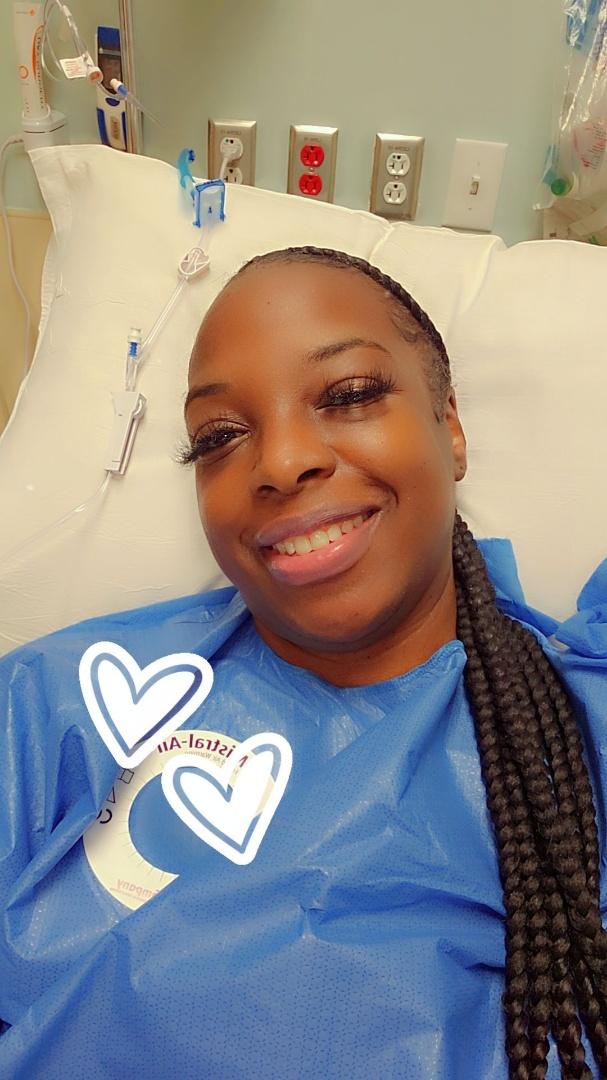
A Call for Earlier Screening and Self-Advocacy
Now, Shaedra uses her voice to advocate for early detection and self-advocacy, especially for young people and Black Americans, who are disproportionately affected.
“I probably shouldn’t beat myself up, but I didn’t go to the doctor… If I had, maybe we could’ve caught it sooner,” she says. “So I tell people: get your annual exams. If you have a family history, tell your doctor. If something feels off—even slightly—speak up.”
Dr. Gajjar echoes her message.
“We’re seeing a rise in colon cancer among young adults. African Americans are at higher risk. That’s why screening guidelines have shifted—everyone should be screened at 45, or earlier with a family history,” he says.
He adds, “Weight loss, changes in bowel habits, bleeding—don’t ignore them. It’s better to have a negative test than a late diagnosis.”
RELATED: 4 Signs That a Young Adult Might Have Colon Cancer
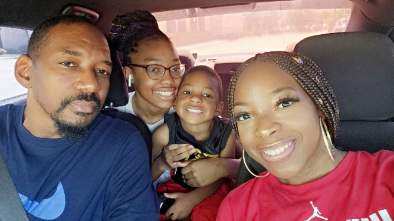
“I Am the Testimony”
Throughout her journey, Shaedra has shared updates on social media—not for sympathy, but to show others what resilience looks like.
“I used Facebook to show the smiles, even when I was hurting. To remind people that cancer doesn’t have to be the end,” she says.
She also emphasizes the power of support.
“You need someone. A friend. A family member. Someone you can cry to, vent to, call in the middle of the night. That support can carry you through the darkest moments,” she notes.
Final Words
To anyone afraid to speak up or get checked, Shaedra offers this:
“Cancer isn’t a death sentence. When I was diagnosed, I thought my life was over. But I’m here. I fought. And I’m still standing.”
Dr. Gajjar adds, “Her story is powerful because it shows what can happen when you combine determination, support, and timely care. It’s also a reminder that young people can—and do—get cancer.”
Shaedra Young-Bryd’s story isn’t just one of survival—it’s a call to action: Get screened. Speak up. Know your body. And never stop fighting.




